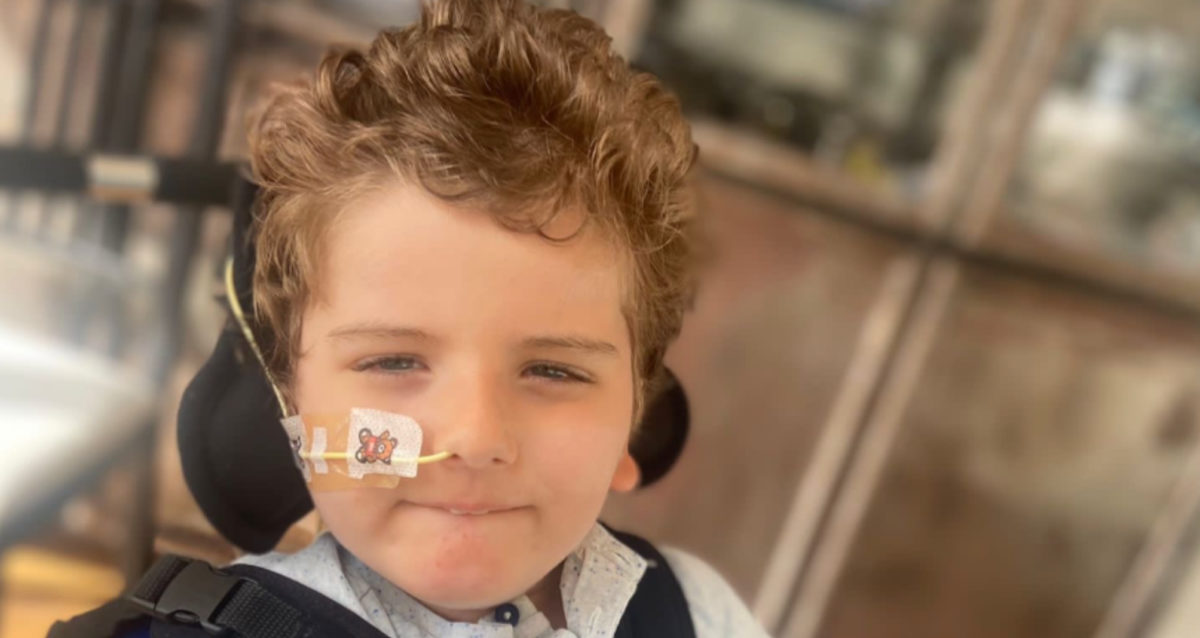Richard Engel, the NBC News chief foreign correspondent, has shared an update on the health of his 6-year-old son, Henry.
“For everyone following Henry’s story, unfortunately, he’s taken a turn for the worse,” Engel wrote on Twitter. “His condition progressed and he’s developed dystonia: uncontrolled shaking/ stiffness. He was in the hospital for 6 weeks, but is now home and getting love from brother Theo.”
Journalist Richard Engel Gives Heart Wrenching Update About 6-Year-Old Son Henry
For everyone following Henry’s story, unfortunately he’s taken a turn for the worse. His condition progressed and he’s developed dystonia: uncontrolled shaking/ stiffness. He was in the hospital for 6 weeks, but is now home and getting love from brother Theo. pic.twitter.com/7atwNPhJ6q
— Richard Engel (@RichardEngel) May 31, 2022
In the sweet video, Engel shared, his son Theo, who will turn 3 in August, gives Henry kisses as he lies in bed.
Henry was born with a variation of Rett syndrome, a rare genetic disorder that starts with normal early development, which then starts to slow usually around 6 to 18 months of age, causing loss of use of the hands, problems with walking, and intellectual disability, according to the National Institute of Neurological Disorders and Stroke.
Currently, there is no cure for the condition, and people with Rett syndrome need constant care to treat their symptoms.
Not too long after sharing the first video, Engel tweeted another sweet photo of Henry sitting up and looking at the camera.
Thank you everyone for all the kind messages, from Henry, our Mr. Handsome. pic.twitter.com/GjlXx3SsRu
— Richard Engel (@RichardEngel) May 31, 2022
RELATED: A New Study Shows That Screen Time Is Linked to Lower Brain Development in Preschoolers
“Thank you, everyone, for all the kind messages, from Henry, our Mr. Handsome,” he wrote in the caption. Engel, along with his wife, Mary Forrest, has been candid about their son’s diagnosis. Engel recalled the shock In 2018 of learning that his son will likely never be able to perform tasks such as walking or dressing himself.
“It’s not just a delay. It means life-long, permanent, untreatable physical and intellectual impairment,” Engel said on TODAY in 2018. “Unfortunately, the more we learned about it, the worse the news got.”
Engel spoke about the feeling of watching his younger son making more progress than Henry in developmental milestones.
Thank you for the messages of support! Today Henry was able to briefly support himself in a seated position during physio for the first time in a long time. Go Henry!
— Richard Engel (@RichardEngel) June 1, 2022
For more info about supporting research into neurological disorders and RETT Syndrome: https://t.co/gr65xO8GSk pic.twitter.com/wMQ3PbsC5w
RELATED: 20 Activities for 6 Month Old Babies That Are Beneficial to Their Development
“You hold a baby like Theo and he’s wriggling,’” he told People back in 2019. “His muscles are moving. When he is upset, he screams with his whole body and kicks his legs with power. It’s something we never saw with Henry. … We were hoping (Henry) would grow out of it. … Then we realized it was a genetic condition, and he’s not going to get over it.”
However, despite the challenging moments, there have been silver linings too, like the moment when Henry said “Dada” for the first time at 3 and a half years old.
“It was a long time coming, which made it all the sweeter — an unexpected reward,” Engel wrote in a 2019 essay for TODAY.
“To parents with typically developing children, a little Dada may not seem like a big deal. But for me it was a validation, an acknowledgment that he’s in there, knows me, knows that his mother and I are forces for good in his life, and above all, that he loves us.”
